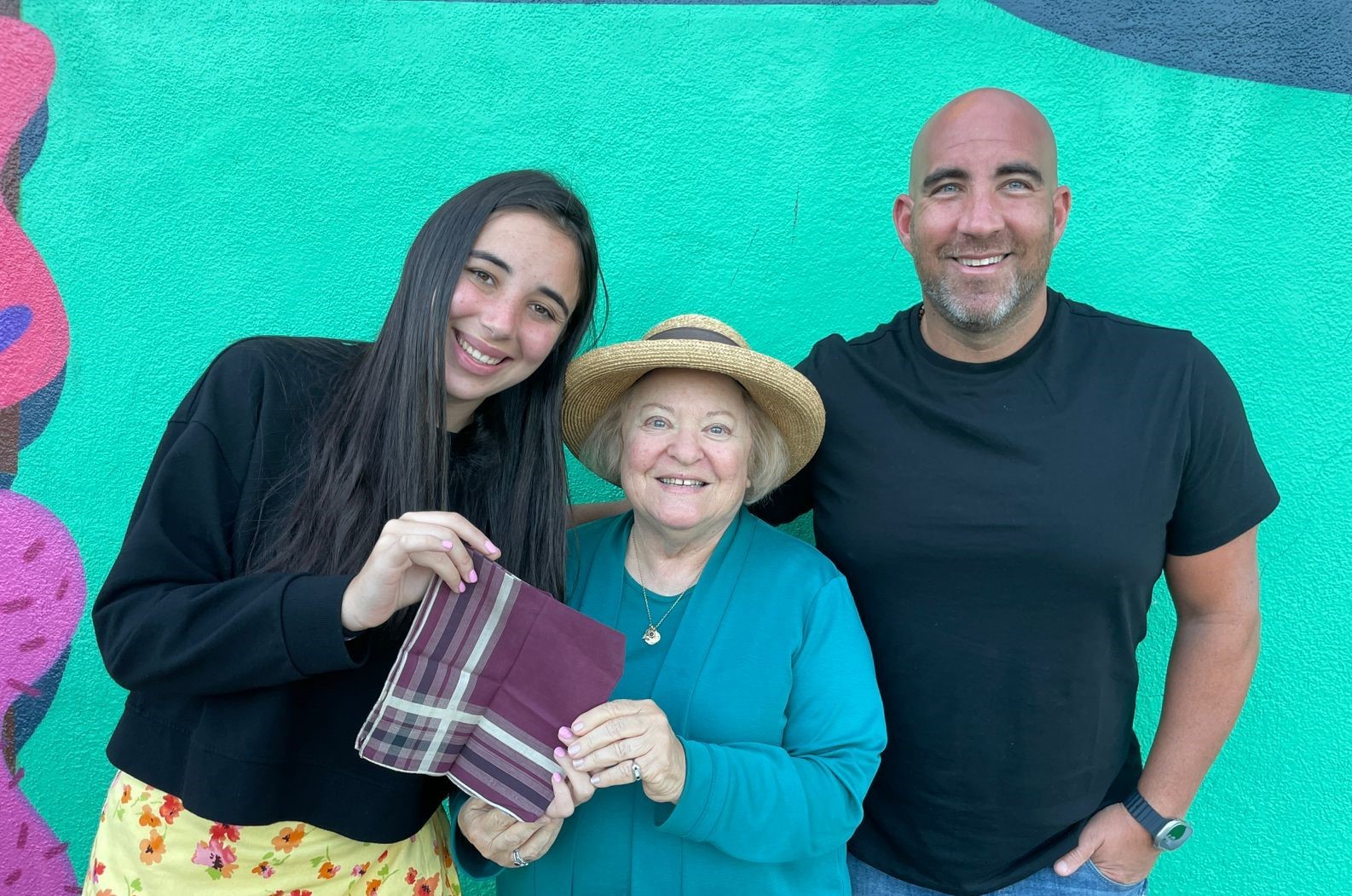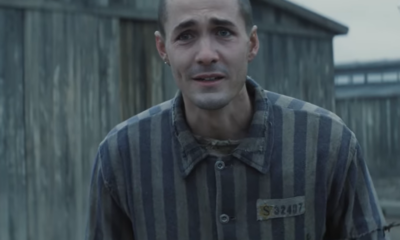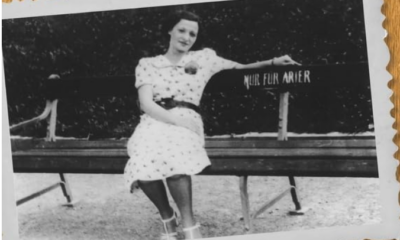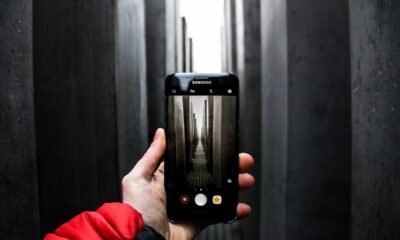
Featured Item

Miracle of maroon handkerchief comes full circle
When King David pupil Noa Nerwich wrote a poem about a maroon handkerchief given by a father to his daughter before they were torn apart by the Holocaust, she never imagined the impact it would have on her life. She also never imagined that she would actually hold the handkerchief.
This tiny detail in a much larger story came to symbolise hope, survival, and the ties that bind Jews around the world. In 2020, at the age of 14, Nerwich wrote the poem for the 21st Annual Holocaust Art and Writing contest run by the Chapman University and 1939 Society, based on a Holocaust survivor’s testimony. She came across Ruth Halbreich’s recording, which briefly mentions the handkerchief. Noa found this detail to be an extraordinary symbol, and wrote her poem about it, winning the competition.
A year later, Halbreich passed away. Shortly thereafter, her grandson, Reg Tigerman, came across the poem in a newsletter he received, and realised it was about his grandmother. Soon afterwards, he also found the maroon handkerchief. He made contact with Nerwich, who is now 17, creating a connection that spans generations and continents. And finally, this past June, she was able to make a long-awaited trip to America to meet the family and even see the handkerchief.
“I was overcome with emotion as well as shock that I was actually holding the hankie in my hand,” says Nerwich, of that moment. “Ruth didn’t speak extensively in her testimony about the hankie, but somehow, I connected with it and now, in my hand, was something she treasured from her late father. I couldn’t believe that she had actually held the hankie in her hands, and now generations later, across continents, so was I. When Ruth’s grandson reached out to me in 2021 after she passed away, it was such an emotional connection. However, meeting her family in the flesh took on a whole new meaning.”
The first prize of the competition was a fully paid trip for two to Los Angeles, on a study trip with other winners from around the world focused on Holocaust education and remembrance. At the time, due to the COVID-19 pandemic, Nerwich was unable to take up the trip. “However, thanks to the generosity of Chapman University and the donors, my father and I were afforded this incredible opportunity three years later,” she says.
“The trip was truly a life-changing, eye-opening, perspective-altering trip that exposed me to incredible people and deepened the responsibility of remembering the Holocaust,” she says. She was able to visit world-class Holocaust museums and exhibits and interact with Holocaust survivors. “The highlight was meeting Ruth’s daughter, Emily, as well as her great-granddaughters, where she shared much more about Ruth’s life.”
Nerwich felt a sense of connection because in spite of meeting for the first time, “we all shared a love for Ruth and a desire to honour her memory. The conversation flowed easily, and it was fascinating and emotional to learn more about Ruth and her inspiring husband, Siegfried Halbreich, one of the founders of the Holocaust Museum LA and the author of Before During After, about their life before and after the Holocaust.
“While this experience has had a deep impact on me, it has been inspiring to see what it has meant for the family and how touched they were by the tribute to their mother and grandmother,” she says.
“Not only has writing this poem exposed me to learning in depth about the Holocaust, it also gave me a personal connection to it that I didn’t have before,” says Nerwich. “It has unlocked the most incredible opportunities, exposure, and deep connections, and I feel forever changed. I’m so grateful to my school, King David, for giving me the opportunity to enter this competition and in turn the opportunity to engage with the Holocaust in such a meaningful and life-changing way.”
Her father, Craig, who accompanied Noa on the trip, says, “It was powerful and humbling to sit across the table from Emily, Ruth’s daughter. She shared deeply with us, showed us pictures, and gave us Siegfried’s book. In addition, it was moving to meet the great-grandchildren and witness Ruth’s legacy live on for generations to come.
“It was also moving to see how meaningful it was for Ruth’s family,” he says. “Emily messaged me a few times after we met, and it was clear from the messages how impactful and profound Noa’s poem and the meeting was for them.
“Meeting you and Noa today was quite remarkable for me,” wrote Emily. “I re-read Noa’s poem and couldn’t get over how beautifully it was articulated. I also re-read the story in the SA Jewish Report. It’s amazing. I so wish Reg and my daughter, Bobbye, could have met both of you. Hopefully sometime in the future we can meet again. Till then, let’s stay in touch. Thank you.”
Craig says the experience made the importance of Holocaust education clear to him, as well as “the power of remembrance, the criticality of storytelling, and acknowledging the exceptional work that the Chapman University and The 1939 Society are doing”.
Closer to home, “The importance of our school, King David Linksfield, and the pivotal role that King David plays in keeping the Holocaust close to our children’s hearts and giving them these life-changing opportunities can never be diminished,” he says. “We’re forever indebted for this life-changing experience.”











Richard Dubb
June 29, 2023 at 12:28 pm
Both a remarkable and moving story. I would have liked to have read the poem – perhaps I missed it! From time to time one reads stories about how Jewish people from all walks of life come across “lost”relatives and friends. We are small in numbers but big at heart.